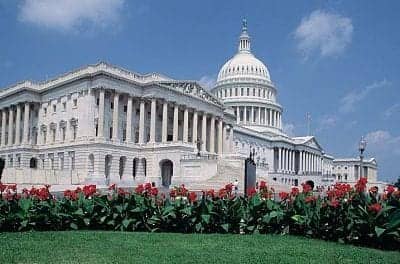The Medicare Audiologist Access and Services Act of 2019 (S.2446) was introduced by US Senators Elizabeth Warren (D-MA) and Rand Paul (R-KY) following introduction of identical legislation (HR 4056) in the US House on July 25, according to an update issued by the American Speech-Language-Hearing Association (ASHA). ASHA reports it is collaborating with the American Academy of Audiology (AAA) and the Academy of Doctors of Audiology (ADA) to move this “critical legislation” forward in Congress.
According to ASHA, the Medicare Audiologist Access and Services Act of 2019 (HR 4056/S.2446) will remove “unnecessary barriers, allowing patients to receive appropriate, timely, and cost-effective audiologic care.” Currently, Medicare requires a physician order for patients to see an audiologist—and covers only diagnostic services provided by the audiologist without allowing for follow-up treatment or a plan of care. This legislation is designed to improve outcomes for beneficiaries by allowing direct access to audiologic services and streamlining Medicare coverage policies so that audiologists can provide the full range of diagnostic and treatment services covered by Medicare that correspond to their scope of practice. Importantly, the legislation will also reclassify audiologists as practitioners, which is consistent with the way Medicare recognizes other non-physician providers, such as clinical psychologists, clinical social workers, and advanced-practice registered nurses.
Direct access bills generally enjoy strong support from most audiologists, but have encountered controversy even among the major audiology professional associations. Historically, the American Academy of Otolaryngology-Head and Neck Surgery (AAO-HNS) and the International Hearing Society (IHS) generally oppose the legislation, making it more difficult for the it to gain traction in Congress. In 2014, AAA ended up giving the ADA’s 18×18 initiative its support, but also pursued its own Access to Hearing Health Care Act before eventually endorsing the Audiology Patient Choice Act in May 2015. In 2018, the AAA Academy Membership Meeting revealed that the AAA Board of Directors agreed with most facets of the bill, but were wary of its unintended consequences, particularly in relation to the requirements and pros-and-cons surrounding the limited license practitioner (LLP) status accorded by Medicare, the same status accorded to dentists, podiatrists, chiropractors, and optometrists.





